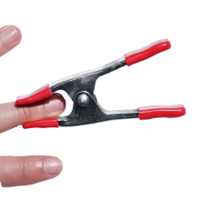
The term "pinched nerve" is somewhat of a catch-all phrase that is commonly used to describe the pain associated with a variety of conditions from subluxations, to tunnel syndromes to the referred pain from trigger points.
Most of the time, what is called a pinched nerve is actually an irritated, or inflamed nerve where the nerve itself is not actually pinched. In most cases, nerves become irritated and inflamed when the bones, joints or muscles of the spine are not in their proper position, or are not moving properly. This condition is called a "subluxation", the treatment of which is the specialty of the doctor of chiropractic.
There are instances when nerves do become 'pinched', such as in Carpal Tunnel Syndrome, Sciatica and Thoracic Outlet Syndrome. In each of these cases, injury, spasm or inflammation of the surrounding muscles and connective tissue causes the nerve to become compressed, resulting in pain. These conditions are referred to as "tunnel syndromes." Treating tunnel syndromes is more complex than treating a simple spinal subluxation, but they usually respond very well to chiropractic care; especially when combined with other physical therapies, such as exercises and stretches.
Trigger points are very tight "knots" of muscle that form when muscles are either chronically overworked or injured, and are often experienced as a pinching or burning pain. Trigger points will commonly cause pain that radiates to other parts of the body, which is also known as referred pain. The successful treatment of trigger points usually requires a combination of chiropractic care, stretching and a form of deep tissue massage called 'trigger point therapy.'
It is very important that the cause of any form of pain be properly diagnosed. This is especially important when nerves are affected as severe or long term irritation, or compression, of a nerve can lead to permanent nerve damage. If you have been told that you have a "pinched nerve" it is very important that you seek professional care from a doctor of chiropractic as soon as possible. Contact us today!
